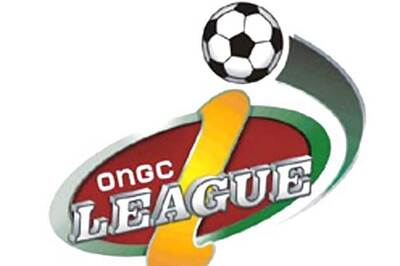
views
Tripoli: The huge numbers of weapons circulating in a post-war Libya with unsecured borders pose a risk to Europe and other nations, the European Union's senior representative in Tripoli said on Friday.
Western states have given their support to the rebel forces which, after six months of fighting ended Muammar Gaddafi's 42-year rule in Libya, but they are concerned groups such as al Qaeda's North African wing could exploit any power vacuum.
Agostino Miozzo, special representative of EU foreign policy chief Catherine Ashton, told Reuters that the bloc wanted to see Libya's interim government, the National Transitional Council (NTC), tackle the security problem by swiftly establishing control over its borders and reorganizing the armed forces.
The council was treating the issue as a priority, he said.
"Security is really a great concern. It's a great problem Walking around we see people in a sort of holiday. They are happy. The game is over for Gaddafi," Miozzo said in an interview in the EU mission's temporary office in a Tripoli hotel.
"But you see too many weapons. Young boys, young soldiers with Kalashnikovs. Everybody is wearing Kalashnikovs."
"So, (the priorities are) army control, control of weapons, control of security, reorganization of the army, reorganization of border control."
Asked about the prospect of Islamist militants exploiting Libya's revolution to strengthen their base in the region, Miozzo said: "This is an evident risk."
He said the NTC's control over Libya's long desert frontiers extended only to a few areas.
"But we not know for the rest of the country. The borders are still open. People, mercenaries, anyone is moving and the border is a long border."
The NTC controlled from Benghazi in the east up to the Egyptian border and would likely be able to control the sea border, he said.
"But the rest of the country is totally, completely, open. This is the reason why we need to go fast in reorganization of the border control, for example."
Analysts and Western government officials have raised such concerns, as has Algeria, which said during the war that its al Qaeda Islamist enemies may have acquired weaponry including SAM-7 portable anti-aircraft missiles from Libya.
Miozzo said NTC chairman Mustafa Abdel Jalil and Libya's de facto Prime Minister Mahmoud Jibril, were taking the issue seriously and, after finding the fugitive Gaddfai, was a main priority.
HUMANITARIAN PROBLEMS
Miozzo said he did not believe Libya was facing a humanitarian catastrophe. Food and fuel shortages were easing as supplies arrive by sea and from neighbouring countries. There was still an urgent need for medical supplies and doctors but the EU's humanitarian agencies were assisting.
Large parts of the capital are without running water, though the EU official said this was expected to be fixed soon. He warned though that infrastructure was vulnerable to attack from pro-Gaddafi loyalist forces.
"We may expect some sabotage. We may expect some reaction from the loyalists. We are working and we need to be prepared for this terminal aspect of the war."
The fighting in Libya largely spared the physical infrastructure but, Miozzo said, the NTC faced the task of re-building institutions which were allowed to atrophy during Gaddafi's autocratic rule.
"They need to build up everything. They have to start from zero really," Miozzo said.
National unity will be a challenge, he said, with the country's rulers having to heal the splits from Gaddafi's divide-and-rule style of governing.
Though the majority of Libya's people support the revolution, there are rivalries between different tribes and regions, while some tribes still back Gaddafi.
"The real risk is to have a Libya divided according to tribal divisions. That was a major weapon for Gaddafi. Gaddafi underlined the division between tribes. That's a real problem," he said.
But he said representatives of Libyan civil society "do not feel the need to have a country divided. We need to support this reconciliation process."

















Comments
0 comment